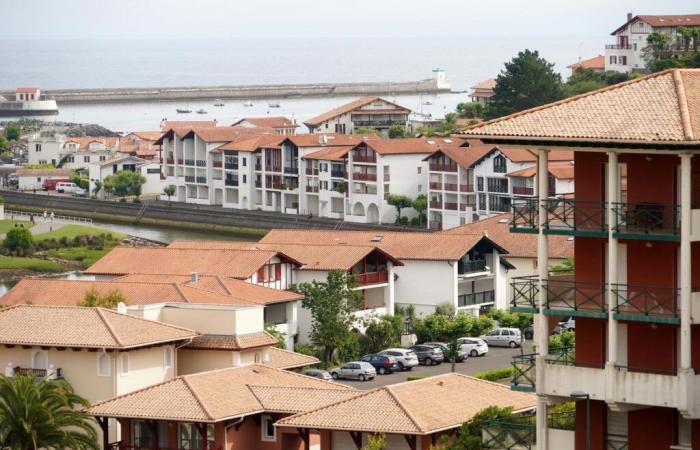
Lhe information circulated after dark, Monday November 29: the joint parliamentary committee (CMP) responsible for working on the regulation of furnished tourist accommodation is “conclusive”. Understand that the deputies and senators gathered within this body (1) have found a consensus on the proposal (PPL) for a law dedicated to rebalancing taxation between short-term seasonal rentals and year-round rentals. The text proposes to put an end to the so-called “Airbnb” tax loophole, named after the main advertising platform for furnished rental properties.
The Renaissance deputy from Finistère Annaïg Le Meur and her socialist colleague from the Pyrénées-Atlantiques Iñaki Echaniz, carry this transpartisan text. Its article 3 tackles the much-anticipated tax issue. To date, renters of unclassified furnished tourist accommodation apply a 50% tax reduction on income from this activity, up to a limit of 77,000 euros. Those who rent so-called “classified” furnished accommodation, with a higher level of service, can deduct 71% within the limit of 188,000 euros. The classic lessor of “bare” apartments, which provides long-term accommodation for families, is limited to 30%. The bill reduces the first category to 30%, up to 15,000 euros, the second to 50%, up to 77,700 euros.
In a good way
This version delivered in CMP reduces the windfall effect for one-off rental companies. And hopes to limit the breakdown of the rental market by these returns disconnected from social realities. However, Iñaki Echaniz deplores a version that is still too low in tone. “Even if the CMP is conclusive, there remains a point of disagreement with the senators who refused to further lower the reduction rate for classified tourist accommodation. We were hoping for 40% instead of 50%. This would have allowed alignment with the bare for which the government is committed to setting the reduction at 40%, instead of 30% today. » The case of these long-term rentals did not enter into the debates of the joint committee, but will be included in the financing bill.
I think it is necessary to achieve an alignment of rates, and therefore the elimination of any comparative advantage for seasonal rental
Les Républicains senator Max Brisson supported the Echaniz/Le Meur bill in front of his people. In a press release, he disagreed among the senators: “I think it is necessary to achieve an alignment of rates, and therefore the elimination of any comparative advantage for seasonal rentals. » He is campaigning to “increase the reduction on long-term bare rentals to 50% or 40%”. Or “reduce the rate applied to classified furnished rentals and bring it back towards that applicable to unfurnished rentals”.
Reinforced mayors
Biarrot welcomes the “greater regulatory power given to mayors”. “A great victory,” relishes Iñaki Echaniz. Article 2 of the bill extends to all municipalities the principle of prior authorization for any change of use of housing. Everywhere, the first magistrates must be consulted before being able to transform year-round accommodation into tourist accommodation. The same article goes much further: “Municipalities will be able to decide on quotas for furnished tourist accommodation by sector and designate in local urban planning plans (PLU) areas reserved for the construction of main residences. »
They observe owners who declare secondary residences as main residences to avoid compensation
Another new option for mayors: the reduction from 120 to 90 days of the maximum possibility of renting your main residence as tourist accommodation. A provision particularly inspired by discussions with the mayors of Biarritz and Bayonne, Maider Arosteguy and Jean-René Etchegaray. “They observe owners who declare secondary residences as main residences to avoid compensation (2). » With one month less latitude, this type of fraud will tempt fewer free riders.
On November 5, the rewritten PPL will return to the Senate and on the 7th to the National Assembly. But for simple reading, before the vote of parliamentarians. The negotiated approach of the joint committee should protect the text from legislative traps.
(1) Moving to a joint committee accelerates the legislative process by seeking a negotiated compromise on a text, between senators and deputies. If this compromise is found, the text is voted on without further parliamentary debates.
(2) Or the intercommunal regulation which subjects the transfer of a long-term rental to the tourist offer to the creation of equivalent accommodation.
The short duration will not escape the energy diagnosis
The proposed law generalizes the obligation of energy performance diagnosis for short-term rentals, which is not currently the case. This is to avoid “the flight of long-term rentals towards furnished tourist accommodation”. The objective of an energy classification D by 2034 at the latest is established.





